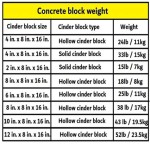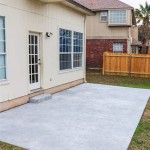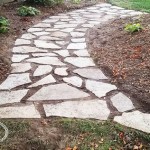Essential Aspects of Choosing the Right Gravel for Patio Base
When constructing a patio, the choice of gravel for the base layer is crucial for ensuring its stability and durability. Gravel provides a solid foundation that supports the patio's weight, prevents shifting, and promotes drainage. Here are some essential aspects to consider when selecting the right gravel for your patio base:
1. Type of Gravel
Crushed stone gravel, such as limestone, granite, or basalt, is commonly used for patio bases. Pea gravel, which is rounded and smooth, is also an option but may not provide as much stability as crushed stone.
2. Size of Gravel
The ideal gravel size for a patio base ranges from 3/4 inch to 1 1/2 inches in diameter. Smaller gravel particles can be unstable, while larger particles may create an uneven surface.
3. Compactibility
The gravel should be compacted to achieve the desired density and stability. Compacting helps prevent shifting and settling over time. Use a hand tamper or plate compactor to compact the gravel in layers.
4. Drainage
Good drainage is essential to prevent water from pooling on the patio and damaging the base. Choose a gravel type that allows water to percolate through it and a base with proper sloping to facilitate drainage.
5. Depth of Gravel
The depth of the gravel base depends on the weight and size of the patio. Generally, a depth of 4-6 inches is sufficient for most residential patios. However, heavier patios or patios built on unstable soil may require a deeper base.
6. Geotextile Fabric
Consider using a geotextile fabric between the soil and the gravel base to prevent weeds from growing through the gravel and to stabilize the base.
7. Compaction Equipment
The appropriate compaction equipment depends on the size and thickness of the gravel base. A hand tamper is suitable for small areas and shallow bases, while a plate compactor is recommended for larger areas and deeper bases.
8. Leveling
The gravel base should be leveled before installing the patio surface to ensure an even surface and prevent tripping hazards.
9. Maintenance
Regular maintenance is essential to maintain the stability and durability of the gravel base. Periodically check for any settling or erosion and make necessary adjustments. Remove any weeds or debris that accumulate on the gravel surface.
By carefully considering these essential aspects, you can select the right gravel for your patio base, ensuring a strong foundation that supports a long-lasting and stable patio for years to come.
What Kind Of Base Should You Use For Patio Pavers Installation

What Size Gravel To Use For Paver Base November 2024

Best Paver Base Material And Practices Nitterhouse Masonry

How To Prep Lay A Base For Pavers Western Interlock

How To Make A Pea Gravel Patio In Weekend The Handyman S Daughter

Paver Patio Base Preparation

Paver Base Stone Mix Royalton Supply Landscape Center

How To Prep Lay A Base For Pavers Western Interlock

It S All About The Base Permeable Paving As A Sustainable Solution Nature Perspective Landscaping

Patio Base
Related Posts








